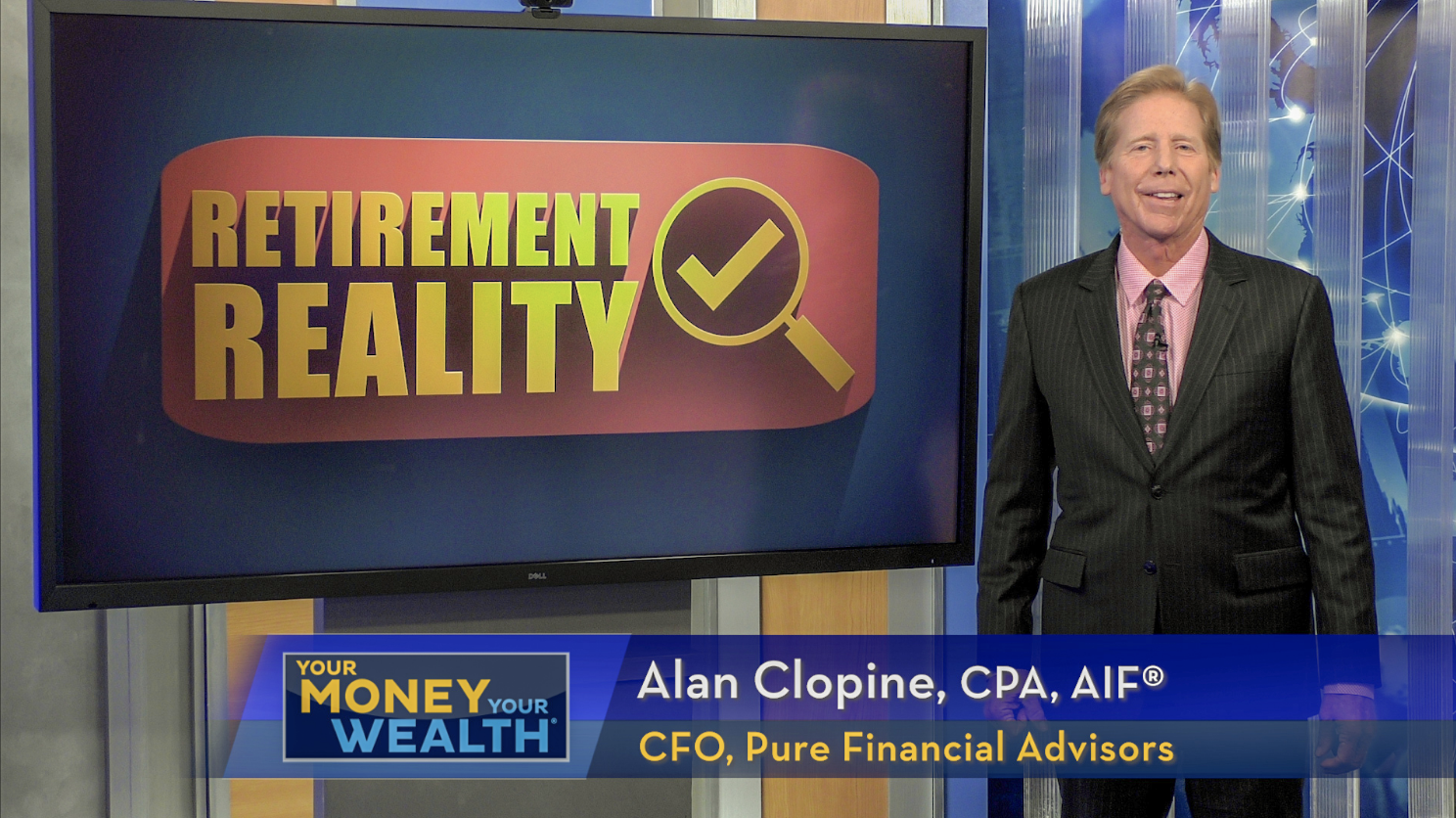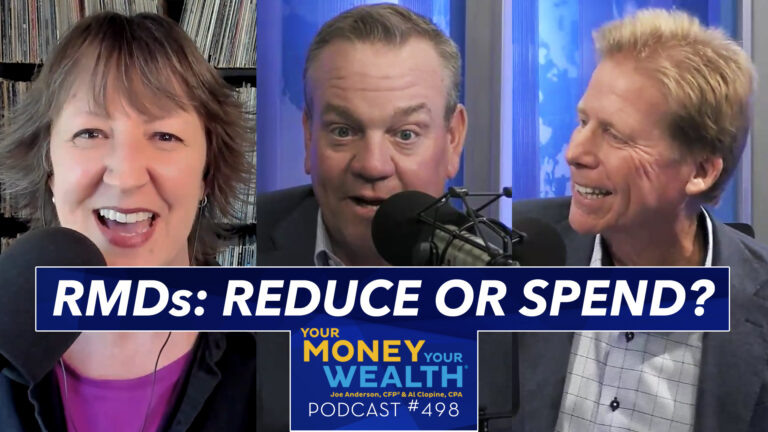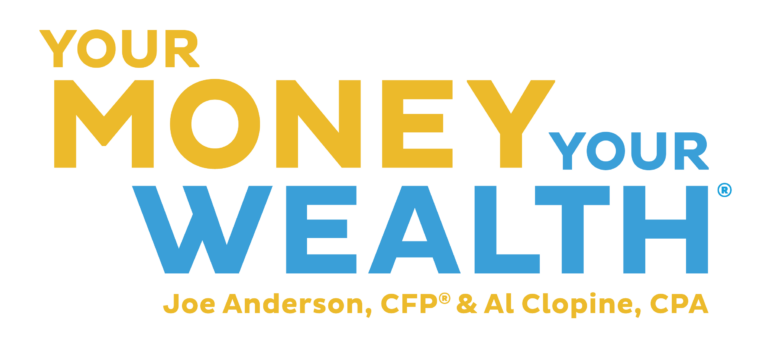When deciding whether to claim Social Security early, how do taxes figure into the analysis? If Social Security creates too much provisional income so that you have to pay tax on your Social Security benefits, does it make sense to claim Social Security early? If you apply for Social Security at age 70 and learn you could’ve taken spousal benefits for four years, are you owed that money? Plus, a listener takes issue with YMYW’s dollar-cost averaging discussion. But first, how long did the recovery from the 1929 stock market crash really take, and do higher yield investments early in retirement offset sequence of returns risk?
Subscribe to the YMYW podcast Subscribe to the YMYW newsletter

Show Notes
- (01:04) How Long Did the Recovery from the 1929 Crash Really Take? (Marion)
- (04:13) Do Higher Yield Investments Early in Retirement Offset Sequence of Returns Risk? (Marion)
- (07:31) Should We Claim Social Security Early? How Do Taxes Figure Into the Calculation? (Chris, outside Atlanta, GA)
- (14:19) If Social Security Benefits Create Too Much Provisional Income, Should I Claim Early?
- (17:49) Am I Owed Four Years of Spousal Social Security Benefits? (Karen)
- (24:32) Comment: YMYW Blew It on Dollar Cost Averaging (Alan, TN)
Free financial resources:
WATCH Joe and Big Al answer questions from the YMYW podcast – on video!
Listen to today’s podcast episode on YouTube:
Transcription
Today on Your Money, Your Wealth® podcast 369, when deciding whether to claim Social Security early, how do taxes figure into your analysis? If Social Security benefits create too much provisional income so that you have to pay tax on your Social Security benefits, does it make sense to take Social Security early? If you apply for Social Security at age 70 and learn you could’ve taken spousal benefits for four years, does Social Security owe you that money? Plus, a listener takes issue with YMYW’s dollar cost averaging discussion, and Joe’s big personal news in the Derails. But first, how long did the recovery from the 1929 stock market crash really take, and do higher yield investments early in retirement offset sequence of returns risk? Get your money questions answered on YMYW: visit YourMoneyYourWealth.com and click Ask Joe and Al On Air to send them as an email or a priority voice message. I’m producer Andi Last, and here are the hosts of Your Money, Your Wealth®, Joe Anderson, CFP® and Big Al Clopine, CPA.
How Long Did the Recovery from the 1929 Crash Really Take? (Marion)
Joe: Marion writes in. “The first attachment is a New York Times article, stating recovery from the 1929 crash only took 4 ½ years, instead of the often stated 25 years. The second attachment is for a podcast website advocating changing some, not all, of your stocks and bonds to higher yielding options for the first 5 years of retirement to offset the chance of sequence of return risk. After the 5 years then slowly changing the higher yielding options back to the original allocation. I would appreciate any comment. Marion. A Chevrolet 2019 Red Silverado. A Kirin beer when available to excess.”
Al: I think the first question is related to more of a comment. Marion wants us to comment on this article on the 1929 crash. It only took 4 ½ years instead of the often stated 25 years.
Joe: I think what Marion does is that Marion listens to a lot of podcasts. I think there’s a lot of podcasts and financial advisors and financial planners that do this for the living that sell on fear. Oh, look at the volatility of the overall market.
Al: It’s going to take you 25 years to recover.
Joe: Let me look at this example for you. All you gotta do is data mine the hell out of it. Let me look at the worst absolute period in the history of the world. Then we’re going to say that this is going to happen again and look, it took 25 years to recover. It’s just not true. I think the New York Times kind of debunks some of this stuff.
Al: And what they talked about was, first of all, there was deflation. The cost of goods and services were cheaper. You’ve got to factor that in.
Joe: There’s dividends.
Al: They didn’t count that in. Then they figured the Dow was a proxy for the market, which it’s not. If you want to proxy the market, you use the Wilshire 2000 or 5000 or S&P at least. Dow is like 30 companies.
Joe: Be careful of the doom and gloomers out there. Things are scary. Things are bad, things get ugly and things recover and things get bad. Things get serious. You know what I mean. There’s some people that really, I guess, thrive on hearing the bad news, and some people ignore it. I’m not saying ignore the news. I think you have to understand what’s going on and what your portfolio is doing and how much risk that you’re taking on and how much risk you can stomach before you freak out and say, You know what, get me the heck out of the overall market. If you’re listening and hear, well, I have a strategy that’s going to help you.
Al: You don’t want to be down for 25 years.
Joe: Your retirement is 25 years and you’re never going to get your money back and you’re going to run out of money and blah blah blah blah blah. It’s all kinds of B.S.
Do Higher Yield Investments Early in Retirement Offset Sequence of Returns Risk? (Marion)
Joe: Anyway, Marion is listening to another podcast talking about saving money from sequence of return risk.
Al: The way to do that is to get into higher yielding bonds.
Joe: What they’re doing is don’t sell the stock, just live off the dividend. Then when the market recovers, you still have your shares. I think that is so hard to do. It depends on how much money they are spending. I think it’s marketing.
Al: When you start looking at higher yielding bonds.
Joe: Higher yielding stocks or higher yielding whatever.
Al: At least in the case of the bonds, those are riskier bonds and those tend to perform more like stocks in bad markets. Just be careful. I think a better way to think about it is if you need $50,000 from your portfolio each and every year. Then maybe you take 5 years. That’s $250,000 and have that set aside in very safe, high quality bonds that aren’t going to pay much, but it’s going to be there. Or maybe you take 10 years if you want to be ultra conservative, no matter what the market does for 10 years, you can take $50,000 a year from this portfolio. The market will recover. The last Great Recession, which was the worst we’ve had in 100 years, almost.
That took 3 years to recover. If you were rebalancing, buying more stock when stocks were down, it took more like 2 years to recover. It doesn’t take forever. If you’ve got 5 or 10 years of very safe money, you should be able to ride out virtually almost anything.
Joe: There’s multiple ways for someone to create income. There’s the dividend or high yield strategy. That’s one. There’s the bucket strategy. There’s the annuity strategy. There’s all sorts of different things. First off, you’re going to do some planning upfront. You’re listening to all these different ideas and all that sounds good or this sounds good or that sounds good. Start from the beginning. How much money do you have? Do you have enough money? How much money are you spending? What are your fixed income sources? What other income are you going to receive other than your portfolio? Then you can start constructing an overall strategy that gives you the income that you need long term. Be careful of these fads. Hey, we’re going to call this the yield zone. Well, what the hell does that mean? Then they think it’s a scientific term. No, it’s just an advisor putting a trademark on a saying that he can market. Like our buddy, the bucket, the buckets of money.
Al: That’s sort of the same thing.
Whether you’re still in your working years, nearing retirement, or already retired, you’ve gotta make sure you can afford retirement. Watch Retirement Reality Check, the latest episode of the YMYW TV show, and download the companion Retirement Reality Checklist from the podcast show notes at YourMoneyYourWealth.com. You’ll get 9 ways to make sure you can afford retirement now, or within a few years, or further down the road. Click the link in the description of today’s episode in your podcast app to read the transcript of today’s episode, access all the free financial resources, watch Joe and Al answer your money questions, share YMYW and spread the love, and to get your retirement reality check.
Should We Claim Social Security Early? How Do Taxes Figure Into the Calculation? (Chris, outside Atlanta, GA)
Joe: Chris from outside of Atlanta, Georgia, writes in “Hi Your Money Your Wealth® team. I love the podcast and learn new things each week. You recently addressed whether it might make sense to claim Social Security before age 70 if you plan to invest the money. You said that this only works if you are certain that you will invest all the money. It won’t be the payments or spousal benefits later in life.” Do you remember saying that?
Al: No, but maybe.
Joe: Do you believe that statement? Is that something we would say?
Al: I think if it’s possible you could do better by taking Social Security early and investing depending upon your rate of return, so that is possible.
Joe: “I could say with as much certainty as anyone can that my husband, I will not need our Social Security. We are 57 and 61 today. We each had great careers and we’ll have about $3,500 per month apiece if we wait until age 70 to claim our benefits. Spousal benefits are not a concern as we each have our own account. We have no health concerns or reasons to believe we won’t live until age 70. We are currently in the 24% tax bracket. We have $2.8 million in retirement and non-retirement accounts. My husband is still working, but we already receive over $15,000 per month in pensions, split fairly equally between the two of us. We have no debts or mortgages.” Sounds like Chris is in a pretty good spot.
Al: It seems like it.
Joe: “Because our pension and current income will well exceed what we’ll need to live on. Our portfolios, very aggressive. If we claim Social Security early, we would invest that money equally aggressively. So I think we might meet the criteria that might make it beneficial to claim early and invest.” All right, well, let’s see. “I have two questions first. How do taxes figure into the analysis, whether or not this is a good idea? Second, if we claim early, would we claim at 62 or at full retirement age or 67? What would we need to consider when making that decision?
Since I’m almost 62, my estimates should be more accurate. My statement says that I will get $2,000 at 62, $2,800 at 67, $3,500 at 70. Thanks for all the fun and great suggestions that you bring each week.” OK. Pretty cool. Do taxes play something in Chris’s decision here? I think because they make so much money in their pensions. They’re already going to be paying at the highest level.
Al: Yeah, they are. However, in my way of thinking, taxes do come into this calculation because you’re paying taxes early. In other words, you’re getting Social Security benefits early, but you’re also paying taxes. If you really want to do this right, I think you have to figure out what your net of taxes, Social Security payments are. What your investment rate of return is. Then you’re going to compare that to what it would be if you waited longer. Assuming you still don’t need the money, you can invest that and see where you end up at age 80 or 85 or 90. But it all depends upon your rate of return, which is a very hard thing to predict.
Joe: It’s impossible. You can look at, you know, 6% or you’re going to get 8% or you’re going to get
Al: 10 or more.
Joe: Right. Because what Chris needs to do is, OK at age 62. So they’re going to live well beyond, let’s say, what’s life expectancy 90?
Al: We know that a couple, age 65, there’s a 50% chance that one of them will make it at age 91 or 92.
Joe: Let’s say 90 is the number.
Al: Just say 90.
Joe: If Chris takes Social Security at 62, that’s $24,000, roughly per year. If I go to 62, that’s 28 years. 28 years is how long Chris will receive that $24,000. Assume 6%, 7%, what?
Al: Yes. 7, but you have to do that net of tax too. If you’re really doing this right.
Joe: Then the future value of that $2 million that you would receive at 7% minus tax, let’s call it, maybe 30% of that 70% of that. Then a tax of 1.5?
Al: OK
Joe: Then you would look at if your benefit is 70, but you have a lot higher balance. You have $34,000 at age 70 and you’re going to invest that at 7%.
Al: $3,500 that’s starting at age 70 for 20 years. What do you get there?
Joe: That’s 7%, the future value of that is 1.5. That’s the gross number.
Al: Then net of tax, you’re using 70%. That’s 1.1 ish, 1.2. You can make an argument for that. It’s not what I would do. This is not advice, but what I would do is I would at least have one spouse wait until age 70. Just because of the spousal benefit that if one survives the other, they get, the higher the two benefits. I think that’s sensible.
Joe: If you run a certain rate of return claiming early and growing it at a higher rate, of course, is going to make it look better, but life is uncertain.
Al: Sequence of returns you may do this and then the market tanks.
Joe: Then you die, and then it goes to the heirs. Who knows. That’s a really good point. What are the goals? Is the goal to pass as much as possible to the kids? Or is the goal to maximize your overall retirement? Is the goal to just accumulate a bunch of wealth and look at your statements? Who knows? But you’re right. Al and I look at Social Security maybe a little bit differently. We don’t look at it as an investment. We look at it as a guaranteed fixed income that you can’t outlive. If you don’t need that income, well, then I guess you could take it early and invest it. If you invest it prudently. You would probably be more well off than a tax, if they received a decent rate of return of anywhere from 6 – 8%.
Al: I agree with that.
If Social Security Benefits Create Too Much Provisional Income, Should I Claim Early?
Joe: “If Social Security payments will be too high so that it always causes too much provisional income, when will it be better to take Social Security early?” This is the question, Al. This is what Andi gives me. She’s begging me to read. If SS payments will be too high so that it always causes too much provisional income, when would it be better to take it?
Andi: It says “then,” Joe. “Then would it be better to take Social Security early?”
Joe: Do you understand the question?
Al: Yeah, I do. She’s saying her Social Security payments would be so high that she’s going to have to pay taxes on them. Should she just take the benefits early to keep out of the taxes?
Joe: No,
Al: I agree with that answer. The answer’s no. The answer is delay, for most people, delay as long as you can. If you need the money, then go ahead and take the benefits. If your health is impaired, take the benefits. But in probably most cases, we would say delay as long as you can.
Joe: But we need a lot more information. What’s the other income? Provisional income is basically half of your Social Security benefits, plus your AGI. Then you take a look at what that adds up to be. If it’s over $30,000 or $40,000, then each of those breakpoints, it’s a little bit more than that, but I’m rounding. It is then 50% of your Social Security is going to be subject to income tax. From there, another 25 or 85 % of your Social Security is going to be subject to income tax, 15 % of it is going to be tax-free. It’s like, let me claim early to keep my provisional income lower. Let’s say my Social Security benefit is $30,000. What shows up in my provisional income is $15,000. Instead of getting $30,000, maybe I get $20,000 and only $10,000 shows up on my provisional income. So then I won’t be taxed X amount of dollars.
Al: We don’t know enough information to answer that.
Joe: If it’s only Social Security, what are your other income sources? How is it all going to work? Then you can kind of run the calculation.
Al: Here’s my point, I would never take Social Security early because of provisional income. That to me is not an important factor here.
Joe: I would agree with you.
How and when to collect Social Security is one of the biggest retirement decisions you and your spouse will make. We always hear “wait until 70 if you can,” but there is no blanket answer – everyone’s circumstances are different. Someone else’s strategy for maximizing payments from Social Security may be completely wrong for your situation. How do your Social Security benefits fit in with all the other aspects of your finances? Claiming Social Security the wrong way, or at the wrong time, could be an expensive and long-term mistake. Learn how to make the right choices for your specific situation: schedule a comprehensive analysis of your entire financial plan with an experienced financial professional at Pure Financial Advisors. Click the link in the description of today’s episode in your podcast app, then click Get an Assessment to schedule your Social Security Analysis and Financial Assessment. While you’re there in the podcast show notes, don’t forget to download free financial resources like the Social Security handbook, Ask Joe & Big Al your money questions via email or priority voice message, and share YMYW with your friends and colleagues.
Am I Owed Four Years of Spousal Social Security Benefits? (Karen)
Joe: Karen writes in, “I thought I was doing everything right. Working to 70 and putting off collecting Social Security until I was 70. I finally got there and applied on my 70th birthday. In reviewing my application, the Social Security reviewer realized I was married for 30 years and divorced for over 2, obviously, and turned 66 in March. I qualified for spousal benefits starting March 2018 through when I take my larger benefits at age 70. I was told they would only do a 6 month look back from my application dated November 2021. Don’t they owe me that money? If I hadn’t paid taxes for 4 years, they would still expect me to pay. Is there any way I can get that money? With all the rule changes in 2015, I got totally confused. Thanks for your help.” No, you can’t get the money, Karen.
Al: That is accurate. Here’s where I get confused. Karen, I sympathize with you. This is not very easy. I don’t know why it’s so complicated.
Joe: Why would even the Social Security person even mention it?
Al: I don’t know.
Joe: It’s like you get your benefit at age 70 and then it’s like, Oh, congratulations, welcome to your retirement. Here is going to be your benefit. Your first check will be in the mail or deposited in your checking account. Hey, thank you very much. Versus you know what? You really blew up. You shouldn’t claim a spousal benefit 4 years ago. We can’t really do much about it, but we just want to have you leave pretty angry.
Al: The answer to your question is, no, you cannot get the money, you get 6 months. Here’s my question to you, for my clarification as well as our listeners. They did change the rule pretty significantly in 2015 that if you claim the spousal benefit, you couldn’t necessarily let your benefit increase because of the deeming rules. It’s still unclear whether that’s only from 62 to full retirement age or is it full retirement age to age 70? Or I guess it’s only when your spouse is receiving benefits. Maybe you can clarify that.
Joe: The only thing that I forget because it’s been a while is that there was a grace period between when they changed the rules, they could still claim their benefit, if you were a certain age. So there was a couple of years.
Al: Maybe she’s referring to that.
Joe: She’s still probably qualified for her to take the spousal benefit.
Al: Because right now you couldn’t do that.
Joe: No, right now when you turn 66 and say, I want to claim the spousal. What had to happen prior to the rule change is for someone to claim spousal benefits. For those of you that don’t know, a spouse benefit is half of your spouse’s benefit. Let’s say my benefit is $1,000, my spouse’s benefit is $3,000; the sponsored benefit is higher than ½ of my own. I would claim $1,500. Before you could say I want to claim my spousal benefit, that $1,500, and then let my benefit on my own record accrue. I get this 8% delayed retirement credit until I turn 70, and then I would switch from the spousal benefit and I would turn on my own. There were some caveats that the spouse had to be claiming their benefit for you too, and that’s still true today for you to claim a spousal benefit. Unless you were divorced or the spouse was deceased. I think she might fall in that window. I don’t have my social security manual here, but it doesn’t work today.
Al: In other words, today, if you claim your benefits after full retirement age and expect your spousal benefits after full retirement age and expect your benefit to grow to age 70, it doesn’t work that well.
Joe: No it doesn’t.
Al: For anybody.
Joe: You can’t switch back and forth.
Al: Because of the deeming rules.
Joe: Correct. They’re going to give you the higher of the two once you claim your benefit.
Al: They basically treat it as if you claimed your own benefit and then you get a little extra for the spousal.
Joe: We went through this and went through all of our clients and we had to call Social Security. Spousal benefits and restricted application, file and suspend; all of this stuff that we were doing. The Social Security Administration, God bless our hearts. But they were super confused as well.
Al: Because it’s confusing. It was confusing before, and it still is.
Joe: I wish I had; I wish we would have prepared for the show so we could have done a little bit more research on this. Her question is, can she do anything? Can she get the money?
Al: Retroactive? No.
Joe: No, they’re already giving up a couple of bucks. This is why it’s so important for people to understand the rules and find the appropriate Social Security strategy that is appropriate for them. We found people that left hundreds of thousands of dollars on the table because of a wrong claiming strategy.
Al: Right. I would say, just for myself, I’m a CPA, I’m not an advisor, and it’s confusing to me. I sympathize. This is confusing for everybody.
Joe: I get where this is a thorn in Karen’s you know what. You know, I try to follow the rules and listen to the advice. All the gurus are saying wait until 70, wait until 70. So I worked until 70 and I claimed my benefits at 70. I got my 8% delayed retirement. Most people don’t wait until 70 because they want their money.
Al: It’s something like 2 or 3% wait until 70.
Joe: She’s one of the 2 or 3% that said, I’m going to wait until 70 to claim my benefits.
Al: Now you’re telling me I could have done this and you’re not going to pay me.
Joe: She’s like what the hell did I do this for. God, I got screwed. Damn it. I get it. I’m sorry, Karen, but it is what it is. Congratulations on your retirement.
Al: The glass is half full.
Joe: It stinks, we’ve seen a lot worse mistakes. It’s super confusing. I wouldn’t beat yourself up too much. It’s probably, I don’t know, $20,000, $30,000 that probably just left on the table.
Al: At least.
Comment: YMYW Blew It on Dollar Cost Averaging (Alan, TN)
Joe: We got a comment from Alan in Tennessee. “Boy, did you guys blow the dollar-cost averaging question. DCA is all about market timing, so by spreading out the cost of premiums over a length of time is the flip side of investing over time…. You don’t know if the market will be going up or down. Now your caller was spot on.” What caller?
Andi: This was the topic from Jim in Santa Cruz, who asked about his health savings account, paying the premiums for his Medicare and wasn’t it like reverse dollar-cost averaging? Do you remember that one?
Al: I remember, I remember you explaining what dollar-cost averaging is and then you said why it doesn’t work as well when you’re taking money out. I believe that’s what the question was.
Joe: And we blew it?
Al: Apparently.
Joe: Al, did you move to Tennessee and you’re just writing in?
Al: Yes, I got pissed at you. I’m going to pretend I live in Tennessee.
Joe: A lump sum investor? Let’s say you have the choice of dollar-cost averaging. You have $1 million and you say I’m going to put that $1 million into the market over a period of 12 years. I’m going to put a little bit in this month, a little bit in that month, and so on and so forth. I’m going to ride out the overall market. Some months the markets up, some months the market’s down, but I’m going to average out the cost of the shares of the market over a 12 month or 24 month period or whatever. That is a totally fine strategy, but 75% of the time, if I invested 100% of that lump sum on January 1st versus doing dollar cost average, I will have more money at the end. There’s been study after study, after study, after study. That’s why most financial professionals would prefer if you have money to invest for a long goal, invest it right now.
But the markets are volatile, so people feel more comfortable by doing it as a dollar-cost average. Which is totally fine as long as it gets that person to invest.
Al: That is the main thing. Because you’re right, markets go up more than they go down over the long term.
Joe: I’m sure Jim from Santa Cruz, the guy writes in every other week. He knows a lot more about this than we do.
Al: He’s probably not going to write anymore because we blew that one.
Joe: We blew that one. We did that on purpose so he doesn’t write to us anymore. I’m kidding. All right. That’s it for us. Thanks, Andi. Appreciate all the hard work that you do.
Andi: Thank you, Joe.
Joe: Big Al Clopine, good job today. We’re done. We will see you in a couple of weeks. I’ll be out for a couple of weeks, so we’ll see you on the flip side. The show is called Your Money, Your Wealth®.
_______
Listen to the YMYW podcast:

Amazon Music
AntennaPod
Anytime Player
Apple Podcasts
Audible
Castbox
Castro
Curiocaster
Fountain
Goodpods
iHeartRadio
iVoox
Luminary
Overcast
Player FM
Pocket Casts
Podbean
Podcast Addict
Podcast Index
Podcast Guru
Podcast Republic
Podchaser
Podfriend
PodHero

Podknife
podStation
Podverse
Podvine
Radio Public
Rephonic
Sonnet
Spotify
Subscribe on Android
Subscribe by Email
RSS feed
Celsius energy drink, it’s a bad day to be a beer, and Joe’s big life change in the Derails at the end of the episode – stick around, you definitely don’t wanna miss this.
Subscribe to the YMYW podcast Subscribe to the YMYW newsletter
Listen on Apple Podcasts | Google Podcasts | Stitcher | Player FM
Your Money, Your Wealth® is presented by Pure Financial Advisors. Sign up for your free financial assessment.
IMPORTANT DISCLOSURES:
Pure Financial Advisors is a registered investment advisor. This show does not intend to provide personalized investment advice through this broadcast and does not represent that the securities or services discussed are suitable for any investor. Investors are advised not to rely on any information contained in the broadcast in the process of making a full and informed investment decision.
• Investment Advisory and Financial Planning Services are offered through Pure Financial Advisors, LLC, a Registered Investment Advisor.
• Pure Financial Advisors LLC does not offer tax or legal advice. Consult with your tax advisor or attorney regarding specific situations.
• Opinions expressed are not intended as investment advice or to predict future performance.
• Past performance does not guarantee future results.
• Investing involves risk including the potential loss of principal. No investment strategy can guarantee a profit or protect against loss in periods of declining values.
• All information is believed to be from reliable sources; however, we make no representation as to its completeness or accuracy.
• Intended for educational purposes only and are not intended as individualized advice or a guarantee that you will achieve a desired result. Before implementing any strategies discussed you should consult your tax and financial advisors.
CFP® – The CERTIFIED FINANCIAL PLANNER™ certification is by the Certified Financial Planner Board of Standards, Inc. To attain the right to use the CFP® designation, an individual must satisfactorily fulfill education, experience and ethics requirements as well as pass a comprehensive exam. Thirty hours of continuing education is required every two years to maintain the designation.
AIF® – Accredited Investment Fiduciary designation is administered by the Center for Fiduciary Studies fi360. To receive the AIF Designation, an individual must meet prerequisite criteria, complete a training program, and pass a comprehensive examination. Six hours of continuing education is required annually to maintain the designation.
CPA – Certified Public Accountant is a license set by the American Institute of Certified Public Accountants and administered by the National Association of State Boards of Accountancy. Eligibility to sit for the Uniform CPA Exam is determined by individual State Boards of Accountancy. Typically, the requirement is a U.S. bachelor’s degree which includes a minimum number of qualifying credit hours in accounting and business administration with an additional one-year study. All CPA candidates must pass the Uniform CPA Examination to qualify for a CPA certificate and license (i.e., permit to practice) to practice public accounting. CPAs are required to take continuing education courses to renew their license, and most states require CPAs to complete an ethics course during every renewal period.













